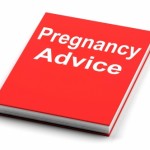 If you’re pregnant or thinking about becoming pregnant, the topic of breastfeeding has probably come up. Maybe you’re determined to do it, maybe the thought makes you nervous or uncomfortable. In honor of National Breastfeeding Awareness Month, we’d like to share the following information about what breast milk provides to help you make—or feel good about—your decision:
If you’re pregnant or thinking about becoming pregnant, the topic of breastfeeding has probably come up. Maybe you’re determined to do it, maybe the thought makes you nervous or uncomfortable. In honor of National Breastfeeding Awareness Month, we’d like to share the following information about what breast milk provides to help you make—or feel good about—your decision:
Better Nutrition: Science cannot replicate everything that makes breast milk the ideal food for infants. The vitamins and nutrients in a mother’s breast milk are easier for babies to digest, and it has the perfect amount of protein, fat, and carbohydrates required by your baby. Best of all, the composition of your breast milk changes as your baby grows, providing him or her with specific developmental and nutritional needs.
Better Health: Colostrum, the first milk, has high concentrations of antibodies that help protect the mucous membranes in the throat, lungs, and intestines of your newborn. And breastfed kids are less likely to contract childhood diabetes, multiple sclerosis, heart disease, and cancer before the age of 15. Breastfeeding can protect your child from asthma, bronchitis, ear infections, pneumonia, diarrhea and urinary tract infections, and breast-fed children have a decreased risk of tooth decay.
Boosted Brain Function: According to recent research, young children who were breastfed as infants scored higher on intelligence tests. Breastfeeding can increase a baby’s brain growth by 20 to 30 percent. The longer and more exclusively children are breastfed, the more intelligent they will become later in life.
Bonding: Breastfeeding and the closeness and comfort that come along with it can strengthen the bond between a mother and her baby. Physical contact is important to babies, as it helps them feel warm and safe. And the skin-to-skin contact boosts the mother’s oxytocin levels—oxytocin is a hormone that helps breast milk flow and can calm the mother.
Better Health for Mom, Too: It’s been proven that breastfeeding lowers the risk of breast cancer, ovarian cancer and anemia in mother, and it helps you lose your pregnancy weight.
Still not convinced? You can at least think about giving breastfeeding a try—that colostrum you produce in the first couple of days is called “liquid gold” for a reason.
Need support? There are many breast feeding resources available in Western New York. or you can call us here at Chouchani, Sayegh and Bagnarello. Our goal is to help you and your baby get the best possible start in life.
Photo courtesy of freedigitalphotos.net.
More
 You think getting pregnant will be easy. You have sex, you get pregnant, right? But in reality, life doesn’t always work that way. If you’re trying to conceive, these simple health changes can help boost your chances of conception.
You think getting pregnant will be easy. You have sex, you get pregnant, right? But in reality, life doesn’t always work that way. If you’re trying to conceive, these simple health changes can help boost your chances of conception.
If you’re a woman trying to get pregnant, consider:
Managing Your Weight
Being underweight or overweight can delay your ability to conceive. Talk to your doctor about what is a healthy weight for you and how best to achieve it. Use these summertime healthy habits to get started.
Watching What You Drink
Drinking too much coffee (or other caffeinated beverages) or too much alcohol can impair your fertility. If you drink coffee or soda, monitor your intake to make sure you stay under 200 to 250 milligrams of caffeine a day.
Studies on alcohol intake and women’s fertility have produced mixed findings. But Swedish researchers have found that women who drank two alcoholic beverages a day decreased their fertility by nearly 60%. Once again, moderation is key.
Eating Better
To make sure your body has enough of the vitamins and minerals it needs in order to conceive, eat a wide range of fruit and vegetables, eat more nuts, seeds and oily fish, and eat less meat.
If you and your partner are working together to increase your chances of getting pregnant, here are some tips just for him, and a few for both of you!
Protect Those Sperm
Okay, the idea that switching to boxers instead of briefs will boost fertility by keeping genital temperatures down is basically an old wives’ tale. But men should still avoid hot tubs or taking regular hot baths. And a man who wants to be a father probably shouldn’t keep his laptop on his lap for extended periods of time.
Stop Smoking
Smoking cigarettes can impair both men’s and women’s fertility. Smoking can reduce sperm production and damage DNA, and it affects how receptive the uterus is to the egg. And in men, smoking can reduce sperm production and damage DNA. (Follow these ideas to quit smoking.)
Experts also strongly suggest…
Timing Intercourse Wisely
Take advantage of what doctors call the “fertile window,” the six days that end on the day of ovulation. Pregnancy is most likely to occur with intercourse within the three days before ovulation.
Avoiding Pesticides and Other Harmful Chemicals
Exposures to pesticide, especially agricultural pesticides, may harm both men and women’s fertility. So will exposure to some solvents and toxins, such as those used in printing businesses and dry cleaning establishments.
Any more questions? If you’d like to talk to a doctor about your ability to conceive or how you can increase your chances of conception, make an appointment Chouchani, Sayegh and Bagnarello today.
Photo courtesy of freedigitalphotos.net.
More
 Hormone replacement therapy, or HRT, was once called the “Elixir of Youth.” Women’s doctors gave them medications containing female hormones to replace the ones the body doesn’t make after menopause, using HRT to treat menopausal symptoms. It was also thought to help prevent heart disease and possibly dementia.
Hormone replacement therapy, or HRT, was once called the “Elixir of Youth.” Women’s doctors gave them medications containing female hormones to replace the ones the body doesn’t make after menopause, using HRT to treat menopausal symptoms. It was also thought to help prevent heart disease and possibly dementia.
Then, large clinical trials showed health risks.
What are the current recommendations?
Doctors no longer prescribe hormone therapy for heart disease or memory loss prevention. However, further research and new evidence show that hormone therapy may be a good choice for certain women, depending on their risk factors.
Who should consider hormone therapy?
The benefits of hormone therapy may outweigh the risks if you’re healthy and:
- Experience moderate to severe hot flashes or other menopausal symptoms
- Have lost bone mass and either can’t tolerate or aren’t benefitting from other treatments
- Stopped having periods before age 40 (premature menopause) or lost normal function of your ovaries before age 40 (premature ovarian insufficiency)
Why? Because women who experience early menopause, particularly those who had their ovaries removed, have a higher risk of:
- Coronary heart disease
- Earlier death
- Parkinsonism (Parkinson’s-like symptoms)
- Dementia
- Anxiety or depression
- Sexual function concerns
Who should avoid hormone therapy?
Women with current or past history of breast, ovarian or endometrial cancer, blood clots to the legs or lungs, stroke or liver disease should not take hormone therapy. Smokers should also not take hormone therapy.
If your menopause symptoms started after age 45 and are not bothersome, you shouldn’t need hormone therapy to stay healthy. There are other strategies you can follow to reduce the risk of conditions such as osteoporosis and heart disease.
If you use hormone therapy, how can you reduce risk?
Work with your doctor to:
- Find the best product and delivery method for you. You can take estrogen in the form of a pill, patch, gel, or vaginal cream, ring or suppository.
- Minimize the amount of medication you take. Use the lowest effective dose for the shortest amount of time needed to treat symptoms.
- Have regular screenings such as mammograms and pelvic exams and keep in touch with your health care provider to ensure that the benefits of hormone therapy continue to outweigh the risks.
- Make healthy lifestyle choices, such as exercising, eating a healthy diet, maintaining a healthy weight and managing chronic health conditions such as high cholesterol or high blood pressure.
Your age, type of menopause and time since menopause began play a significant role in the risks associated with hormone therapy. Educate yourself and talk with your doctor about your personal risks.
At Chouchani, Sayegh and Bagnarello, we talk to each and every patient about making the best possible choices for their health. If you’d like to work with a practice that cares, please call any time.
Photo courtesy of freedigitalphotos.net.
More
 There has been a lot of controversy surrounding mammograms in recent years, but the American Medical Association, the American College of Obstetricians and Gynecologists, the American College of Radiology, the American Cancer Society, the National Cancer Institute, and the National Comprehensive Cancer Network have all issued guidelines saying that all women should be eligible for screening mammograms starting at age 40.
There has been a lot of controversy surrounding mammograms in recent years, but the American Medical Association, the American College of Obstetricians and Gynecologists, the American College of Radiology, the American Cancer Society, the National Cancer Institute, and the National Comprehensive Cancer Network have all issued guidelines saying that all women should be eligible for screening mammograms starting at age 40.
With that said, what do you need to know about this procedure?
What exactly is a mammogram?
It’s a safe, low-dose radiographic procedure that images the internal tissues of your breasts. There are two types, screening mammograms and diagnostic mammograms. Screening mammograms are the type you get every year to check for breast cancer, even if you have no signs or symptoms of the disease. Diagnostic mammograms are used to check for breast cancer after a lump or other sign of the disease has been found.
Do mammograms hurt?
Well, they’re not comfortable. You’ll have to strike some awkward poses in front of a machine while each breast gets compressed between a platform and a paddle. But—the pain is not constant. The standard mammography takes 15-30 minutes, and your breast is only compressed for a few seconds during each pose. For the most part, having a mammogram is more uncomfortable and embarrassing than painful. Don’t let a few seconds of discomfort scare you off!
Why is it important for women to get mammograms?
According to the National Cancer Institute, annual mammograms can detect cancer early — when it is most treatable. They can show changes in the breast up to two years before a patient or physician can feel them. Mammograms can also prevent the need for extensive treatment for advanced cancers and improve chances of breast conservation.
When should I start getting mammograms?
In the aftermath of the controversy mentioned above, women have received conflicting messages about how old they should be when they have their first mammogram and how often they should get one. The first thing you should know is that women who are high risk for breast cancer, due to family history, a genetic predisposition such as the BRCA1 or BRCA2 mutation or radiation exposure early in life may be told to start earlier, around the age of 35. Discuss your risk factors with your doctor.
Otherwise, The American Cancer Society, the National Cancer Institute, the American College of Radiology, the American College of Obstetricians and Gynecologists, Susan G. Komen for the Cure, and the American Medical Association all support starting at age 40 and getting a mammogram every 1 to 2 Years.
The US Preventive Services Task Force, the American Academy of Family Physicians, the American College of Physicians, the National Breast Cancer Coalition, the Dr. Susan Love Research Foundation, and the World Health Organization say you should start at age 50 and get a mammogram every 2 years.
At Chouchani, Sayegh and Bagnarello M.D., we discuss risk factors and proactive procedures with all of our patients. Want to know more? Call us anytime.
Photo courtesy of freedigitalphotos.net
More
 Summer in Western New York is a special time—especially after a long, hard winter! Most of us enjoy the longer days, the sun and the heat. This summer, why not get more out of this time of year by integrating some healthy habits into your daily routine? Here are a few ideas that can help you get started:
Summer in Western New York is a special time—especially after a long, hard winter! Most of us enjoy the longer days, the sun and the heat. This summer, why not get more out of this time of year by integrating some healthy habits into your daily routine? Here are a few ideas that can help you get started:
- Buy Local Produce: Between farmers’ markets, roadside stands and supermarkets that buy from nearby suppliers, it’s easy to find locally grown fresh produce. Buying locally means your produce is fresher and retains more nutrients—and it’s better for the environment, too! Visit a market near you to shop for a week’s worth of salad ingredients, fruits for a healthy dessert, or a side vegetable for your next weekend barbeque. When fruits are in season, stock up and freeze some for use in the winter.
- Get Moving: Make the most of the warmer temperatures and longer days by swimming laps at a community pool, planning a hike to explore a local park, or riding your bike instead of driving to run small errands. Or get a running/walking buddy to keep you company while you work toward a goal.
- Protect your skin. Yes, sunlight is a major source of Vitamin D, and we enjoy full doses of it when we can. But you need to take precautions and protect your skin. Always wear sunscreen with a minimum SPF of 15 and reapply it regularly. If you’re going to be outside for hours at a time, wear a hat and other protective clothing. The sun’s rays are strongest between 10 a.m. and 3 p.m.
- Drink lots of water. Many people find it easier to drink enough water in the summer, when you’re more aware of having to keep hydrated. Water is more refreshing than sugary juices or carbonated beverages, while unsweetened iced tea is a good substitute for those who don’t enjoy plain water all the time. Keep an insulated bottle of water or tea with you at all times!
At Chouchani, Sayegh and Bagnarello, we believe a healthy community is a strong community, so we encourage our patients and their families to live healthier lifestyles. Want to know more about our OB-GYN practice located in Western New York? Call us anytime.
Photo courtesy of freedigitalphotos.net
More
 Gluten-free has become the big buzzword in dieting right now. You’ve probably heard or read about how much weight you’ll lose if you go on a gluten-free diet. But before you go on a gluten-free diet yourself, here are some things to consider:
Gluten-free has become the big buzzword in dieting right now. You’ve probably heard or read about how much weight you’ll lose if you go on a gluten-free diet. But before you go on a gluten-free diet yourself, here are some things to consider:
- Gluten-free diets can be seriously deficient in important nutrients, such as fiber, iron, folate, niacin, thiamine, riboflavin, calcium, vitamin B12, phosphorus and zinc. Why? Because many gluten-free products are made with refined, unenriched grains and starches, which are high in calories but low in vitamins and minerals.
- Because wheat is ubiquitous in the American diet, completely eliminating gluten requires giving up most breads, crackers, breakfast cereals, conventional pastas, pastry goods, and a wide range of processed foods that contain small amounts of gluten.
- Most gluten-free alternatives, such as pasta and bread, cost significantly more than their conventional counterparts. Some cost twice as much!
- Gluten-free diets were designed to combat celiac disease, a serious autoimmune disorder that virtually destroys the intestinal tract. If you self-diagnose, or decide to go gluten-free to lose weight, you could put yourself in danger—because you would never be able to get an accurate diagnosis of your symptoms if you are indeed allergic to or intolerant of gluten.
Why do people lose weight on gluten-free diets?
When people eliminate gluten and lose weight, they assume it’s because of the lack of gluten they’re eating. But most likely, they lose the weight because they’ve cut out the excess calories found in many flour-based snack foods. You’d get the same results from eating more fruits and vegetables and exercising more—and you could still eat bread, pasta or birthday cakes in healthy moderation!
What if I really shouldn’t eat gluten?
Are you experiencing any combination of the following symptoms? By themselves, they don’t necessarily indicate a problem with gluten, but in combination, they might:
- Gastrointestinal issues, like intense bloating, diarrhea and constipation
- Low iron
- Itchy skin rashes on your arms, torso, face, buttocks, elbows and hairline
- Migraine headaches that start within an hour or two of ingesting gluten
- Joint pain
If so, your first step should be to have a complete check-up with your physician.
You may then have to consult with medical specialists, such as an allergist for wheat allergy and a gastroenterologist for celiac or another gastrointestinal disease, to narrow down your diagnosis and treatment. If you have a wheat allergy, you have to avoid wheat, but you don’t have to avoid gluten from other grains. If you have celiac disease, you must avoid gluten altogether.
The bottom line: If you think you may have a problem with gluten, get tested. If you don’t, going truly gluten-free has no health benefits.
Any questions?
Please call Chouchani, Sayegh and Bagnarello, where we believe in educating our patients to live the healthiest possible lifestyles. Our Ob-Gyn group has been serving the Western New York community for over 30 years.
Photo courtesy of freedigitalphotos.net
More
 You may already know how hard it is to try to quit smoking. You get cravings, you get irritable, and you find yourself fighting the urge to have “just one” cigarette. But now that you’re pregnant, you know it’s never been more important to quit. Here are some tips to help you be successful and have a healthier pregnancy:
You may already know how hard it is to try to quit smoking. You get cravings, you get irritable, and you find yourself fighting the urge to have “just one” cigarette. But now that you’re pregnant, you know it’s never been more important to quit. Here are some tips to help you be successful and have a healthier pregnancy:
1. Have a plan
The first step toward setting yourself up for success? Setting up a plan. Quitting smoking isn’t as easy as just throwing your last pack away. You need to know what you’re going to do when those cravings hit.
- Set a quit date. Make it public, and make yourself accountable, by telling your friends, family and co-workers. And make it as soon as possible!
- Figure out which way will work best for you—going cold turkey or cutting back gradually.
- Have a strategy for handling cravings. They can be difficult, so remind yourself that they only last a few minutes. Chew a piece of gum, have a piece of candy, go for a quick walk or make a phone call. Do something that distracts your mind for a few minutes until the craving passes.
2. Ask for support from people around you
Support from your friends, family and co-workers can double your chances of success. For example, if any of them are ex-smokers, ask if you can give them a quick call when a strong craving hits. If any of them still smoke, ask them not to smoke in front of you.
3. Talk to your doctor or other healthcare practitioner
However you decide to quit smoking, your doctor can help you. He or she can give you information about local support programs, talk to you about nicotine replacement therapy and encourage you through a difficult time. Continue to be honest with your practitioner over the course of the pregnancy about your successes and setbacks, so they can pay extra attention to the growth and development of your fetus if necessary.
4. Learn to motivate yourself
Giving up cigarettes is hard work. But as a pregnant woman, you have one of the best incentives to give up! Keep reminding yourself of the benefits of quitting, both for your unborn baby and your own health.
5. Don’t give up if you have a relapse
If you do start smoking again while trying to quit, don’t punish yourself, and don’t give up. Your ultimate goal is to kick the habit for good, so just go back to your plan. Don’t think of yourself as a failure, and be assured that your cravings and withdrawal symptoms will fade within weeks.
At Chouchani, Sayegh and Bagnarello, our goal is to help you have a safe and healthy pregnancy. Please contact us if you’re looking for support to quit smoking, we can provide resources and tools to help you kick the smoking habit for good!
More
 As soon as you announce you’re pregnant, you’ll start hearing all the old wives’ tales—some that are funny and some that are downright strange. But there are other, more modern pregnancy myths that you might find frightening or confusing, so we’re here to help!
As soon as you announce you’re pregnant, you’ll start hearing all the old wives’ tales—some that are funny and some that are downright strange. But there are other, more modern pregnancy myths that you might find frightening or confusing, so we’re here to help!
Is it Safe to Exercise When You’re Pregnant?
Unless you are a high-risk patient or have been told specifically by your doctor not to exercise, participating in fitness activities during pregnancy can have a positive impact on you and your baby. Here are two myths it’s safe to ignore:
- Myth #1: Never get your heart rate over 130 while exercising during pregnancy. There is no one “target” heart rate that’s right for every pregnant woman. Talk to your doctor about how to calculate your RPE, or rate of perceived exertion.
- Myth #2: It’s not safe to do abdominal work during pregnancy. Actually, strengthening your abdominals, your core and your pelvic floor throughout will help not only during pregnancy, but also during labor, delivery and recovery. It can also help with posture problems, which will be a benefit after your baby is born. But because you should avoid any exercises that involve lying on your back after the first trimester, try gentle standing pelvic tilts, seated belly breathing, or tightening abs, holding, then releasing.
What Foods Shouldn’t You Eat?
Most of the no-nos just involve common sense: don’t eat raw foods or drink raw milk. According to our doctors, here are the foods you should avoid or take extra precautions with when expecting:
- Raw or rare meat
- Deli meat (unless you heat the meat until it is steaming)
- Fish that contain high levels of mercury, including shark, swordfish, king mackerel and tilefish. Canned, chunk light tuna can be eaten in moderation.
- Raw Sushi: You can eat sushi if it’s cooked.
- Raw Shellfish
- Imported Soft Cheeses including Brie, Camembert, feta, gorgonzola and queso fresco, unless they clearly state that they are made from pasteurized milk.
- Caffeine: Caffeine intake in moderation is okay. Avoid it during the first trimester, then limit yourself to fewer than 200 mg per day during the pregnancy.
Can I Travel By Plane When Pregnant?
Airline travel is considered safe for pregnant women, but most airlines will require you to have permission from your health care provider if traveling during your ninth month. You should also carry contact information for your doctor. Three other tips:
- Stay hydrated, and get up and walk around about once every hour. It’s important to keep your circulation going.
- Choose an aisle seat, which will allow you to get up and out more easily or stretch your legs and back.
- Travel on major airlines with pressurized cabins and avoid smaller private planes. If you can’t avoid smaller planes, avoid altitudes above 7,000 feet.
At Chouchani, Sayegh and Bagnarello, our goal is to help you have a safe and healthy pregnancy. Please contact us if you have any questions about your own situation!
Photo courtesy of freedigitalphotos.net
More
 There’s no getting around it: if you’re a mom, you’re going to have stress. Yes, you love your children, but the pressure of taking care of another person’s needs all day long—and sometimes part of the night—can drain you of energy and make you feel lousy. Here are four things you can do to reduce your stress and feel more in control:
There’s no getting around it: if you’re a mom, you’re going to have stress. Yes, you love your children, but the pressure of taking care of another person’s needs all day long—and sometimes part of the night—can drain you of energy and make you feel lousy. Here are four things you can do to reduce your stress and feel more in control:
Stop trying to be a “perfect” mother.
Between TV, magazines and websites like Pinterest, mothers see images of immaculate, perfectly organized houses and clean, smiling kids. Instead of trying to replicate that false perfection, try a few shortcuts:
- Cut down on laundry by letting your kids stay in the same clothes all day, even if they get a little dirty. Obviously, there are some stains you don’t want your child to wear all day, but a little juice, food or dirt never hurt anybody.
- Use paper plates and cups to save time and water usage. This means fewer dishes to wash and more time you can spend on the fun aspects of motherhood.
- Allow your house to be a little messy. Every bed doesn’t need to be made, every toy doesn’t have to be put away, and not every floor needs to be swept 20 times a day. Kids make messes, and that’s okay.
Realize that you’re not alone.
Go to any search engine and put in the search term “online motherhood support groups.” Pages and pages of results will pop up. The Internet can be a great source of support, advice and commiseration, which you can get on your own time, on your own terms. There are also real-life support groups in most towns, like MOPS (Mothers of Preschoolers), Mothers of Twins, Parenting without Partners and more. Look for groups in your area and try to attend some meetings, so you can connect with others who are in the same boat.
Know where to go for help.
Nobody has all the answers about motherhood, but again, the Internet can be a great resource. If you do join an online support group, you can ask questions of your fellow members. Or there are plenty of websites out there that can answer any question you might have—no matter how weird it seems to you, chances are somebody has asked it already. If your question deals with a health concern, call your pediatrician’s office, of course. And if she’s available, you can always ask your own mom or your mother-in-law.
Take some time for yourself.
This is probably the hardest one for most moms, but one of the most important. If you’re feeling exhausted, upset, resentful or anxious, you’re not going to be the best parent you can be. Whether it’s something as simple as a 20-minute soak in the tub while listening to music, a walk around the neighborhood, coffee with a friend or something more ambitious like taking an exercise or yoga class, you need a break from the pressures and responsibilities of being Mom, 24/7.
From all of us at Chouchani, Sayegh and Bagnarello, have a happy, healthy Mother’s Day. If you or someone you know is looking for a top OB-GYN practice in Buffalo, please give our friendly staff a call today.
More
 There’s really no such thing as a “normal” period, only because every woman’s period, or menstrual cycle, is unique. But girls and women of all ages have questions, because your cycle will also change over the course of your lifetime. Here are some frequently asked questions from the perspective of different age groups.
There’s really no such thing as a “normal” period, only because every woman’s period, or menstrual cycle, is unique. But girls and women of all ages have questions, because your cycle will also change over the course of your lifetime. Here are some frequently asked questions from the perspective of different age groups.
Teenagers
Almost all teenage girls wonder “When will I get my period?” If they haven’t already, that is! Usually, girls get their periods at around age 11 or 12, but it can happen at any age from 8 to 16. It may happen around the same time that your mom first got hers. If you haven’t gotten your period within three years of when your breasts started to grow, talk to your parent or guardian, your doctor or another adult you trust.
Four other common questions that teenagers ask?
- What exactly is “a period”? Once you’ve hit puberty, your uterus will build up a lining of blood and tissue to prepare for the possibility of being pregnant. That lining would be needed if your egg was fertilized by a sperm cell, as a place for the egg to attach and begin growing into a baby. When the egg doesn’t get fertilized, that blood and tissue comes out.
- What will it look like? Your period flow can be light, heavy, or somewhere in between. It can be light red or dark red and may change from day to day.
- How long will it be? Periods usually last between three and five days, but it’s normal to have periods that are either shorter or longer. It is also normal if your periods are not the same number of days each month, especially in the first years.
- When does it happen? In general, a menstrual cycle takes place over about one month, around 23 to 35 days. But every female’s cycle is different. Try to keep track of when you get it, so you can see if a pattern forms.
Women In Their Thirties and Forties
As you move past your peak fertility years, even if you’ve always had regular periods, you may experience longer, irregular cycles up to 45 days. You may see signs of approaching menopause, like hot flashes and mood changes.
If you’re not approaching menopause, other causes of irregular periods may include stress dramatic weight loss, or sudden weight gain. All of these conditions can affect your body’s hormone levels and may cause changes in the length of your cycle. Medications such as antidepressants can also cause cycle changes. Talk to your doctor if you see any consistent changes in your cycle.
Any more questions? Need a doctor or other professional you can talk to? Call or contact Chouchani, Sayegh and Bagnarello M.D. anytime. You’ll love our caring and knowledgeable doctors and staff.
More
 If you’re pregnant or thinking about becoming pregnant, the topic of breastfeeding has probably come up. Maybe you’re determined to do it, maybe the thought makes you nervous or uncomfortable. In honor of National Breastfeeding Awareness Month, we’d like to share the following information about what breast milk provides to help you make—or feel good about—your decision:
If you’re pregnant or thinking about becoming pregnant, the topic of breastfeeding has probably come up. Maybe you’re determined to do it, maybe the thought makes you nervous or uncomfortable. In honor of National Breastfeeding Awareness Month, we’d like to share the following information about what breast milk provides to help you make—or feel good about—your decision:








